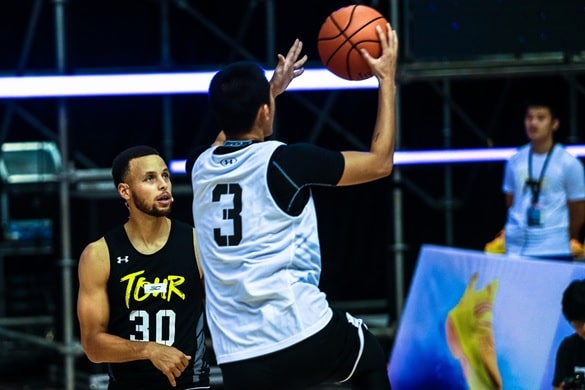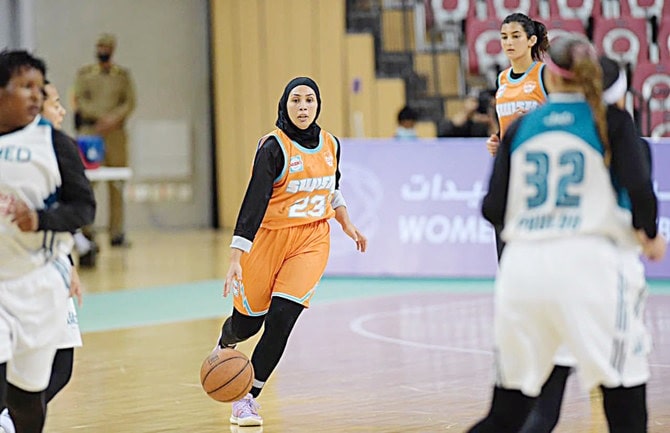
The Canadian men’s basketball team defeated Argentina 70-62 in the bronze medal game at the Parapan-American Games, setting up a must-win scenario to maintain its hopes of competing in the Paralympic Games. Their triumph in Chile ensures they will continue to strive for Paris 2024 qualification.
Patrick Anderson led Canada in scoring with 22 points, while New Brunswick’s Colin Higgins chipped in with 21 points and 11 assists.
As a result of their bronze medal win, the Canadians have guaranteed themselves a spot in a last-chance qualifier for April of next year.
“Can’t really overstate how big the stakes felt today, not only for us but for our whole program moving forward. We bought ourselves another life here,” Anderson said.
“Still getting it done in smaller batches, I guess. Just enough today. It feels really good…but it also feels like a step [forward]. When you’re a good team trying to be great, there are very few easy steps.”
At 44 years old, Anderson was competing in his sixth Parapan Am Games with over 20 years of experience as a program leader.
Late in the game, he scored crucial points for Canada, including a deep three-pointer that decided the match.
“That was a tough one, but we took it. And now we move onto the next one. We’re trying to separate ourselves from the pack and establish ourselves in that upper echelon together. It’s still kind of new to me and we’re all trying to figure that out together. Scratch and claw to get up there with the big boys.”
After a joyful celebration, it’s now time to look ahead and get ready for a major competition in a few months in an attempt to secure a ticket to Paris.
While second and third place earned a spot in the final tournament to determine the teams at Paris 2024, the gold medal winner in Santiago earned a direct berth to the Paralympics.
Canada’s next task is to finish in the top four of the final-chance qualifying competition in Antibes, France, in the middle of April.
“Being in one of these last-chance tournaments is something I’ve never been part of. It’s going to be interesting. [A lot of] really great teams aren’t going to make it to Paris,” Anderson explained.
With his critical plays throughout the game and 21 points to help lead the team to a vital victory, Higgins experienced a significant turning point in his career during his time on the national team.
“It’s the game nobody wants to play in. It means you lost the day before, but we have big goals for this team and had to beat a really good Argentine team,” he explained. “I think we’re gutsy. We’re a gutsy group. Guys stepped up and it’s great to see us all come together. There was a lot on the line. Big win for the program. We’ll enjoy the next little bit and get back to work.”
Since 1960, wheelchair basketball has been played at the Paralympic Games. Canadian teams didn’t begin to claim dominance in the sport until the 1990s.
The Canadian men’s wheelchair basketball team was a dominant force in the 2000s, taking home gold at the Paralympic Games in 2000, 2004, and 2012.
In men’s wheelchair basketball, Canada has participated in every Paralympic Games since 1968. Now, it has an opportunity to continue that tradition.
Canada jumped out to an early 8-2 lead in the bronze medal match, forcing Argentina to call a timeout in an attempt to stem the Canadian tide.
In a tense match during the preliminary round, Canada defeated Argentina 56-49.
The score at the end of the first quarter was 17–12.
In the second quarter, Argentina scored two quick baskets to cut the deficit to 23–18 after Canada had taken a nine-point lead. This time, it was the Canadians who requested a timeout in an attempt to stem the Argentine side’s growing momentum.
This strategy was successful. With two minutes remaining in the half, Canada ended Argentina’s run by stopping their offense on four straight possessions and scoring on the other end of the court.
However, Argentina did not back down and led 28–27 at halftime. After becoming enraged with the referees, Canadian coach Matteo Feriani received a technical foul.
In the second quarter, there were five fouls called on Canadian players, but not a single one on Argentina.
Whatever was said at halftime seemed to have an impact, because the Canadians appeared to be a different team and took the lead again at 7:13 in the third quarter, leading 35-33. Anderson’s three-pointer put the Canadians ahead 40–35, with 5:09 remaining in the third quarter.
After that, the game picked up speed as players from both teams traded baskets at opposing ends of the court.
Then, with 1:23 remaining in the third quarter, Argentina fought back to tie the score at 42-42, forcing another timeout from Canada.
Higgins kept up his impressive play, reaching the free throw line late to give Canada the smallest of leads going into the fourth quarter: 45–44.
During the first three minutes of the fourth quarter, both teams traded leads. Canada took the lead, then Argentina responded. As the pressure increased in the final stretch, amazing drama ensued.
With only 5:45 left in the game, Canada overcame a lead of more than one point, going up by three to secure a score of 53-50.
With four minutes remaining, the Canadians were outplaying their opponents and moving the ball around the court, extending their lead to seven.
From there, Canada would win the game with a three-pointer from Anderson sealing the victory.



